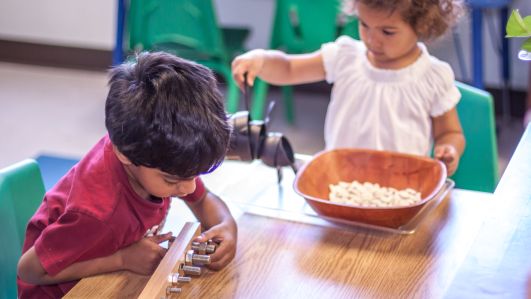
If you are living the typical life of a young American family, then your kitchen calendar is the size of a serving tray and it’s currently bleeding six different colors of ink in order to keep track of everyone’s schedules. From t-ball to soccer practice, music lessons to doctor’s appointments, school events to swimming meets, you may find yourself wistfully remembering those long, lazy—and, yes, boring—days of your youth.
Though it may not be fashionable to encourage unstructured playtime, a hundred years of educational research show that free play serves a vital purpose in the social, emotional, and cognitive development of all children.
Over-Scheduled And Overwhelmed
Your son may love piano, little league, cub scouts, and space camp, and encouraging his interests is wonderful. But if he’s snoring in the car as you shuttle him about and throwing cranky fits when he gets home, it may be time to choose priorities. Changes in mood, an increasing tendency to hide away, or a sudden neediness when not actively engaged are all indications that your child may need some healthy downtime.
Child’s Play Is Serious Business
Dr. Maria Montessori, who developed the now-classic Montessori Method of education, determined through years of scientific observation that children are by instinct eager to learn. In a supportive, caring environment, they will initiate their own cognitive, social, and emotional advancement. Unstructured playtime encourages the same goals. Without adults setting the rules, children engage their decision-making skills, follow their own interests, and develop a sense of self-sufficiency. If they’re playing in a social setting, they further their peer-to-peer skills like collaboration, sharing, and conflict resolution.
Even the American Academy of Pediatrics, concerned with societal changes like the ridiculously stressful college admissions process as well as policies that shortchange recess and physical education, agree that free play is necessary.
So go ahead and let them climb trees, stare at the stars, and draw chalk figures on the sidewalk. If they eventually wander to your side and complain that they’re bored, then you’ve done your job.
A little boredom is good. It allows creativity to cultivate and the curiosity of trying new things.





















